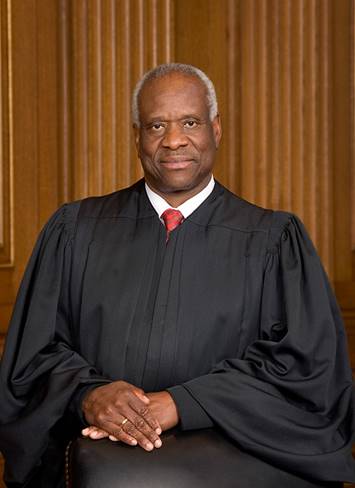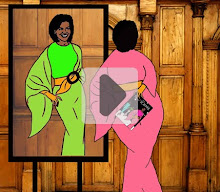I turned my local PBS station last night for the sole purpose of recording the premier of the documentary, Created Equal: Clarence Thomas In His Own Words. And “his own words” are powerful indeed: I watched the entire show.

Perhaps it was Justice Thomas’ voice itself, resonant, measured and mesmerizing. Or perhaps it was the surprise of finding a PBS offering that didn’t reflexively trash the Chief Court Justice just because he is a conservative.
David Zurawik of The Baltimore Sun reveals the Left’s take on the documentary in the title of his review: If you want a one-sided, right-wing, celebratory version of the life of Clarence Thomas, PBS has just the ticket. Yes, PBS
“Clarence Thomas’ story is a classic American Horatio Alger story, coming from dire poverty in the segregated South to the highest court in the land.”
“It is a remarkable journey with him coming from further behind than almost any American political figure, especially when you take into account the segregation and racism he suffered,” the filmmaker continued. “His intellectual journey is also remarkable … from being raised by his grandfather and Irish nuns with traditional hard work values, to rejecting those values and then finally coming back to them later in his life.”
The Left of course hates the PBS piece because it gives voice to the black man they viciously but unsuccessfully tried to “Bork.” Simply because they feared he was out of step with their vision of “women’s rights” which, then as now, seems to start and end with abortion.
“I was OK with the education-of-a-young-man narrative that drove the film from Thomas’ childhood to Catholic school and then the seminary and college life.”
That’s big of him. But the moment Thomas shows signs of being an independent thinker and going off the plantation of the Left’s making, David Zurawik begins to have problems:
“It’s when Thomas enters the realm of American politics as President Ronald Reagan’s chairman of the Equal Employment Opportunity in 1982 and then the Supreme Court nominee of President George H.W. Bush that the one-sided, in-his-own-words approach became seriously problematic to me.”
Of course it was “seriously problematic,” it isn’t the Left’s usual portrayal of Thomas as a sexual predator. If you can watch this documentary and conclude that Anita Hill was the one telling the truth, not Justice Thomas, you probably believed Justice Cavanaugh is a serial rapist too. That this despicable tactic of accusing decent men of sexual predatory behavior has been deployed against conservatives since 1991 is the real story here, and one that is largely ignored by the media. As Justice Thomas eloquently reminds us when he referred to his treatment in the Senate confirmation hearing as a “high-tech lynching,” this type of allegation has been leveled against black men forever.
But Mr. Zurawik continues:
If you want a two-hour production that feels more like hagiography than what I think of as a documentary with balancing voices, then “Created Equal” is for you. The question is whether such a one-sided, “in his own words” version of the life of a figure as controversial as Thomas is what public television should be offering in prime time.
Goodness no, the only hagiographies worthy of PBS prime time are those of Democrat torchbearers like Ted, “the Lion” Kennedy, Barack Obama, Hillary Clinton, and whoever ends up running as the Democrat candidate for president this year.
Hillary Makes Her Move, Frontline PBS, September 2016
PBS is streaming this for the next 14 days, as well as running it from time to time on your local channel. Or you can watch it below. It’s worth your time, if only to see a member of the highest court in the land who actually reveres the Constitution of the United States as written.
Unscripted and without narration, the documentary takes the viewer through (Justice Thomas’) complex and often painful life, dealing with race, faith, power, jurisprudence, and personal resilience.


























